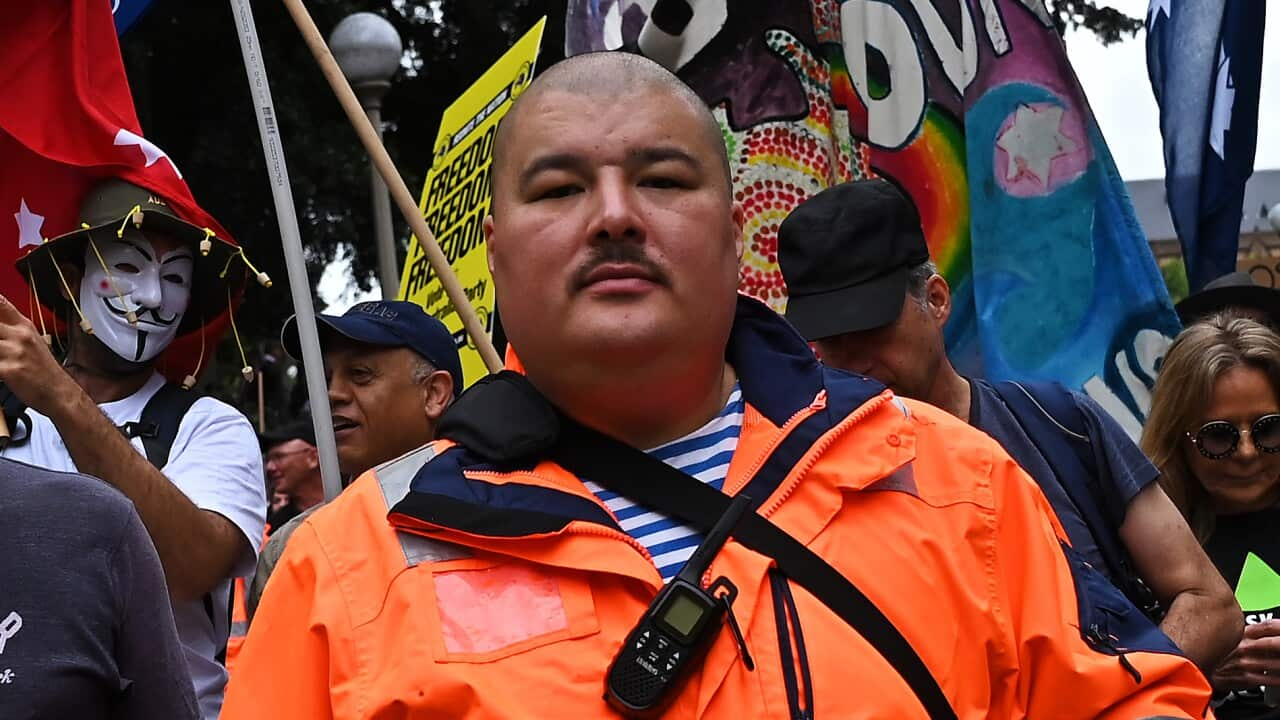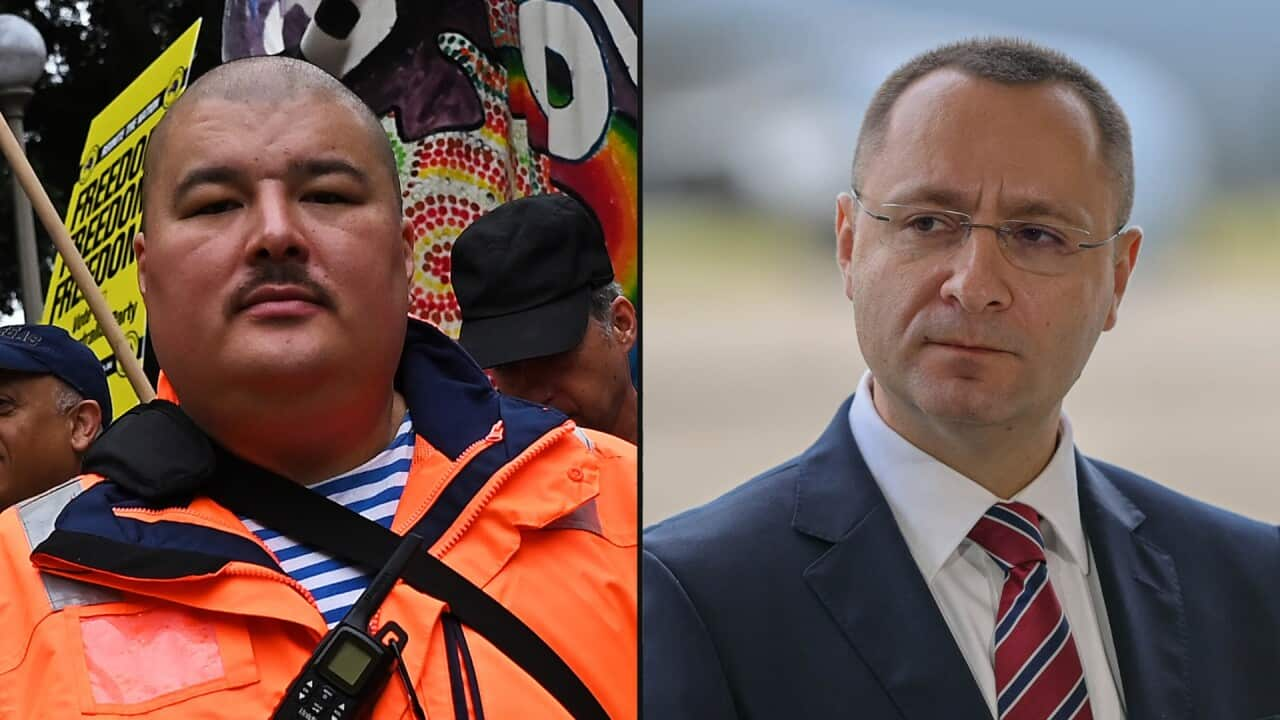Simeon Boikov has been variously described as a misinformation spreader, serial pest, and Russian pawn.
But he may prove a "useful idiot" for the Australian government in securing the freedom of
Melbourne man Oscar Jenkins, who was reportedly captured by Russian forces while fighting in Ukraine
.Boikov has been holed up in the Russian consulate in Sydney's eastern suburbs since December 2022, after being charged with assaulting an elderly man at a pro-Ukraine protest in Sydney's CBD.
The self-styled "Aussie Cossack" maintains his innocence, arguing he was acting in self-defence, but says he would happily leave the country and forfeit his Australian citizenship as part of a deal to secure Jenkins' release.
"I'm sure the Russians will be happy to accept," he said in a video posted on social media platform Telegram.
"We should bring him home, he shouldn't have been in Ukraine.
"Let's do a deal."
, a man is seen with his hands tied and being slapped across the face by another man speaking Russian.
The man said he was a biology teacher named Oscar Jenkins and that he had joined the armed forces because he wanted to help Ukraine. Australian media has since verified Jenkins' identity.
A diplomatic source told the ABC that the government believed the video was legitimate and was working to determine when it was filmed.
While Boikov is seeking asylum with the Russians of his own accord and is not a prisoner of the Australian judicial system, the Opposition's foreign affairs spokesperson Simon Birmingham said he could be used in an exchange to secure Jenkins' release.
"If he potentially proves himself to be, shall I say, a useful idiot in terms of a possibility for a Christmas swap, well that is something for the government to consider as it looks at ways to potentially bring an Australian free and break him from Russian custody," he told ABC Radio on Tuesday.
Prime Minister Anthony Albanese refused to say if the government would consider a prisoner swap deal, but said the government had called in the Russian ambassador to make representations on Jenkins' behalf.
"Our Australian Embassy in Moscow is also making representations to secure a positive outcome," he told reporters on Tuesday.
"It's an opportunity for us to say that the warnings which are there about travelling to areas of conflict are ones that should be heeded by Australians.
"This is not a safe or a secure thing to do and there is risk involved but we will continue to as we always do, make representations on behalf of Australians.
While Jenkins is believed to be the first Australian captured while fighting against Russia in Ukraine, at least seven Australians have died in the conflict.
Parading prisoners of war on social media is a breach of the Geneva Conventions, which dictate that they must at all times be protected against insults and public curiosity.
Acting Foreign Minister Mark Dreyfus urged the Russian government to "fully adhere to its obligations under international humanitarian law, including with respect to prisoners of war".
"Our immediate priority is understanding where Mr Jenkins is and confirming his wellbeing," he said.
Dreyfus said his department was providing support to Jenkins' family and urged Australians not to travel to Ukraine.
Glenn Kolomeitz, a former Australian Army officer and lawyer, estimated that upwards of 30 Australians were in the combat zone fighting with the Ukrainian foreign legion.
"I now suspect that this guy will be exploited for propaganda purposes, to apply some sort of leverage to the Australian government," he told ABC Radio on Monday.



